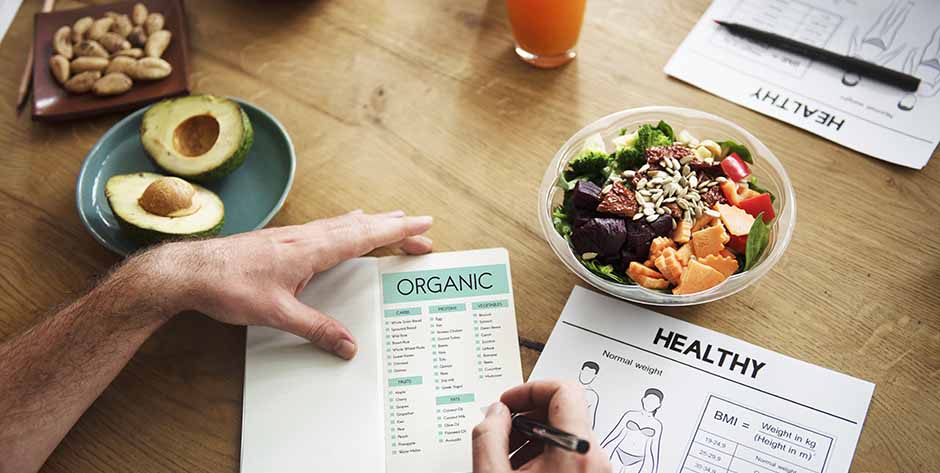More Americans are going organic says the Pew Research Center report “The New Food Fights: US Public Divides Over Food Science”. Between 1994 and 2014, U.S. retail sales of organic foods doubled, according to the Economic Research Service, and have been increasing by 10% annually in recent years.
Organic foods are defined as those not treated with pesticides and fertilizers. Supporters consider these foods safer for consumption and more environmentally friendly than foods treated with chemicals.
The December Pew Research Center survey sought to discover Americans attitudes and buying habits toward organic foods. It discovered 34% of Americans eat some organic foods. An additional 6% eat only organic, but the majority, 59%, eats little or no organic food.
Half of the people who purchased organic foods in the past month said it comprised some of their diets, 45%, or all of it, 9%.
Among those who are concerned about the safety of Genetically Modified Organisms (GMOs), 76% said they eat at least some organic foods. This compares to those with little concern for GMOs, 22% of whom never eat organic.
Other findings include:
Why Buy Organic?
People who are trying to be health conscious are more likely to purchase organic foods, 63%, compared to those who are not, 22%.
Of those who purchased organic goods in the past month, 76% did so because they were seeking healthier options. A third said they make the purchase to be environmentally conscious while 22% cited convenience.
Health was the top reason cited among both those who purchase organic foods regularly and those who purchase them more infrequently.
Slightly more than half of Americans, 54%, said organic produce is healthier, 41% said it was neither healthier nor worse than chemically sprayed produce while 3% believe organic produce is bad for one’s health.
When it comes to taste, 32% said organic produce tastes better, 59% said it tastes the same as conventionally produce and 5% said it tastes worse.
People who purchase organic foods on a regular basis were more likely to say they sensed an improved taste. Slightly more than half said organic foods taste better, compared to 20% of those who eat no or little organic foods.
Do Age and Gender Matter When Making Health Decisions?
Younger shoppers are more likely than older generations to view organic produce as a healthier option. When broken down by age group, 61% of 18-29 year olds, 57% of 30-49 year olds and 52% of 50-64 year olds think organic produce is healthier. After the age of 65, the number who believe this dips below 50%.
Gender played a small role. Women edged out men, 57% to 51%, in the percentage who said organic options are healthier. A small percentage, 2% of women and 4% of men, said organic options were bad for health.
Attitude Molds Responses
Certain groups are more likely to view organic products as healthy:
Of those who said they were focused on healthy eating, 62% said organic foods are healthier. This compares to the rest of the population where the majority said organic foods had the same level of health and nutrition as chemically treated produce.
Among those who are concerned about GMOs, 81% said organic goods are healthier.
Price Matters Too
Finally, the shoppers’ paychecks may play the largest role in making purchasing decisions.
The cost of organic produce also plays a factor in purchasing decisions among 72% of the survey’s respondents.
Among those who purchased organic produce in the past month, 71% said cost was a factor.
Cost is also one of the dissuasive reasons for 79% of people who don’t purchase organic foods.
Melina Druga is an American journalist and author for ReportLinker, a search engine for economic and industry statistics that turns data and PDF documents into structured knowledge.

